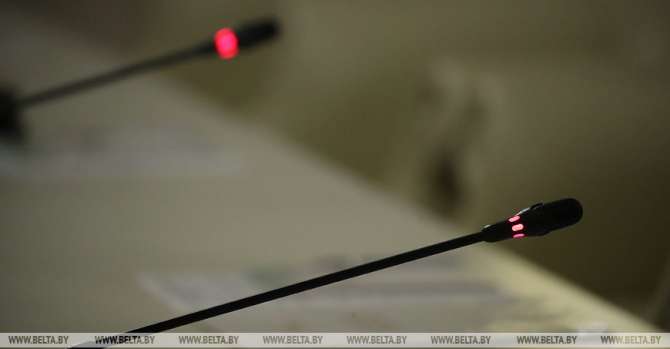Belarus' diplomat: West uses human rights issue to gain advantage in a geostrategic race
26 June 2023, 14:04

The Belarusian diplomat noted that the Universal Declaration of Human Rights prohibits the violation of fundamental human rights and freedoms and at the same time recognizes the right of states to regulate these rights. The declaration establishes that everyone has the right to life, liberty and security of person, access to education and full participation in the cultural life of the community. Everyone has the right to freedom of thought, conscience and religion. No one shall be subjected to torture or to cruel, inhuman or degrading treatment or punishment.
“A lot has changed for the better since that time. The United Nations has developed and adopted more than a dozen major international human rights instruments. Thirty years ago, the Vienna Declaration and Program of Action established the equal status of all human rights, not only civil and political, but also economic and cultural ones,” said Larisa Belskaya.
At the same time, she pointed to a disturbing trend: as the world is becoming more competitive and polycentric, Western countries are getting increasingly focused on preserving and promoting their own vision of the world order and the human rights concept.
“This is manifested, among other things, in the manipulation of the human rights issue to gain the upper hand in a geostrategic competition. This shows itself in the spread of the narrative about the so-called global clash of values, in which liberal democracies are opposed to the so-called ‘authoritarian regimes'; ‘the right' Western development models are opposed to ‘the wrong' ones, that are usually non-Western models of development of the society and state. We see attempts to justify the dominance of the Western doctrine of human rights that is presented as a boon for the world community, and the West is portrayed as ‘an empire with good manners' or, using famous quotes from some European politicians, the ‘web of freedom' or ‘the Garden of Eden' opposed to the ‘jungle' of the rest of the world,” she said.
Larisa Belskaya stated that “a certain group of countries” interprets freedom as the right of people to do much of what is prohibited by law, if this can lead to a split in a society, a coup or a revolutionary explosion in a country and ultimately creates opportunities for redistributing power in a sovereign state in the interests of the West.
“By teaching other states and using unilateral coercive measures against them in defiance of international law and fundamental human rights of the countries under sanctions, some Western governments and politicians deliberately turn a blind eye to human rights problems in their own states. These are racism, the resurgence of Nazi ideology, violation of religious freedoms, persecution of dissent that runs counter to the political mainstream, discrimination against journalists and athletes based on nationality, deterioration of social rights, abuse of migrants and refugees, etc. The trend of replacing mutually respectful human rights dialogue of sovereign states with diktat and confrontation leads to political fragmentation of the world, distrust and conflicts, undermines the principles of the Universal Declaration of Human Rights,” the diplomat stressed.
She is convinced that cooperation in the field of human rights should move away from confrontation. “A genuine dialogue on human rights must be restored on the basis of due respect for the sovereign equality of states, their equal rights and their differences, including historical background, cultural heritage, national peculiarities and people's needs,” Larisa Belskaya is convinced.

